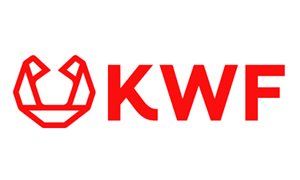13 August 2020
Progression of epithelial cancers predominantly proceeds by collective invasion of cell groups with coordinated cell-cell junctions and multicellular cytoskeletal activity. Collectively invading breast cancer cells express the gap junction protein connexin-43 (Cx43), yet whether Cx43 regulates collective invasion remains unclear.
They show that Cx43 mediates gap-junctional coupling between collectively invading breast cancer cells and, via hemichannels, adenosine nucleotide/nucleoside release into the extracellular space. Using molecular interference and rescue strategies, we identify that Cx43 hemichannel function, but not intercellular communication, induces leader cell activity and collective migration through the engagement of the adenosine receptor 1 (ADORA1) and AKT signaling. Accordingly, pharmacological inhibition of ADORA1 or AKT signaling caused leader cell collapse and halted collective invasion.
ADORA1 inhibition further reduced local invasion of orthotopic mammary tumors in vivo, and joint up-regulation of Cx43 and ADORA1 in breast cancer patients correlated with decreased relapse-free survival. This identifies autocrine purinergic signaling, through Cx43 hemichannels, as a critical pathway in leader cell function and collective invasion.
pdf full article

Progression of epithelial cancers predominantly proceeds by collective invasion of cell groups with coordinated cell-cell junctions and multicellular cytoskeletal activity. Collectively invading breast cancer cells express the gap junction protein connexin-43 (Cx43), yet whether Cx43 regulates collective invasion remains unclear.
They show that Cx43 mediates gap-junctional coupling between collectively invading breast cancer cells and, via hemichannels, adenosine nucleotide/nucleoside release into the extracellular space. Using molecular interference and rescue strategies, we identify that Cx43 hemichannel function, but not intercellular communication, induces leader cell activity and collective migration through the engagement of the adenosine receptor 1 (ADORA1) and AKT signaling. Accordingly, pharmacological inhibition of ADORA1 or AKT signaling caused leader cell collapse and halted collective invasion.
ADORA1 inhibition further reduced local invasion of orthotopic mammary tumors in vivo, and joint up-regulation of Cx43 and ADORA1 in breast cancer patients correlated with decreased relapse-free survival. This identifies autocrine purinergic signaling, through Cx43 hemichannels, as a critical pathway in leader cell function and collective invasion.
pdf full article
Related news items

RIMLS awards call for nominations
19 October 2021 RIMLS awards several prizes to stimulate and honor our (young) researchers. Upcoming awards are Supervisor of the Year, Best Master Thesis, Best Publication, Best Image and more. Send your nominations now before 24 November 2021. go to page
Miniaturized microfluidic platform for automated epigenetic profiling
6 May 2021 Together with Fluidigm, a US-based company focusing on microfluidics, the team of Hendrik Marks publishes in Genome Research the development of a powerful plug and play ChIP-seq platform for minute amount of cells, such as embryonic specimens or small biopsies. go to page
2.5 million Euros for cancer research into ovarian cancer and immunotherapy
15 April 2021 The Radboudumc receives 2.5 million Euros from the Dutch Cancer Society (KWF) for three studies to ensure oncological progress during COVID-19 period. go to page
RIMLS online award ceremony proudly presenting the winners
13 January 2021In this special webinar of the RIMLS New Year Celebration, scientific director René Bindels reviewed 2020 and looked forward to 2021. But more importantly a number of researchers received prizes in the traditional RIMLS awards ceremony.
go to page
RIMLS PhD retreat registration is open
23 January 2020 Yearly, RIMLS PhD candidates gather for the two-day PhD Retreat. Apart from the science, this event is highly valued for the opportunity to meet and get to know fellow PhD candidates during the social activities. Early bird registration and abstract submission deadline: 4 March 2020. go to page
